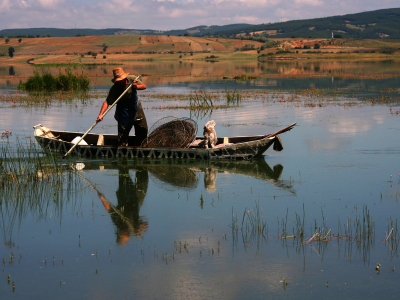
Europe and Central Asia Regional Overview of Food Security and Nutrition 2024
Managing water sustainably for improved food security and nutrition
This report provides the latest updates on hunger, food insecurity and malnutrition in Europe and Central Asia, including the cost and affordability of healthy diets. It also explores the central theme of water security, highlighting its critical connections to agriculture, food security and nutrition. While the region has made progress in reducing hunger and food insecurity (SDG Target 2.1), challenges remain in eliminating all forms of malnutrition (SDG Target 2.2).
Collections
- Country gender assessment series
- Digital agriculture
- Disaster risk reduction and management publication series
- Empowering smallholders and family farms series
- Transboundary animal diseases - Leaflets
Multimedia resources
Publications
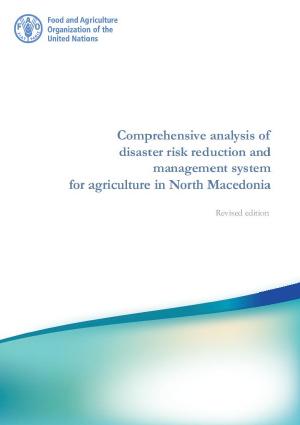
Comprehensive analysis of disaster risk reduction and management system for agriculture in North Macedonia
09/2024
This report aims to highlight the current strengths of the institutional disaster risk reduction (DRR) system for agriculture in North Macedonia as well as indicate existing gaps and capacity needs to further enhance it. A comprehensive assessment is conducted, which includes a general overview of the country’s agriculture sector and outlines the most frequent natural hazards impacting it.
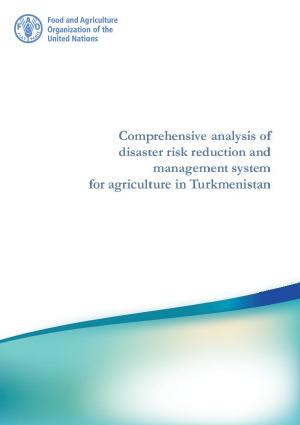
Comprehensive analysis of the disaster risk reduction system for the agriculture sector in Turkmenistan
09/2024
This report aims to highlight the current strengths of the institutional DRR system for agriculture in Turkmenistan as well as indicate existing gaps and capacity needs to further enhance it. A comprehensive assessment is conducted, which includes a general overview of the country’s agricultural sector and outlines the most frequent natural hazards that are impacting the sector.
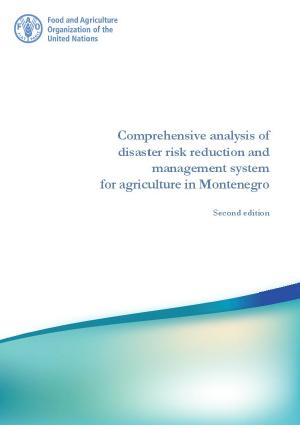
Comprehensive analysis of disaster risk reduction and management system for agriculture in Montenegro
01/2024
This report aims to highlight the current strengths of the institutional disaster risk reduction (DRR) system for agriculture in Montenegro as well as indicate existing gaps and capacity needs to further enhance it. A comprehensive assessment was conducted, which includes a general overview of the country’s agriculture sector and outlines the most frequent natural hazards that are impacting the sector.
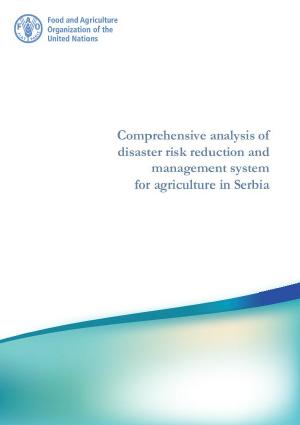
Comprehensive analysis of disaster risk reduction and management system for agriculture in Serbia
01/2024
This report aims to highlight the current strengths of the institutional disaster risk reduction (DRR) system for agriculture in Serbia as well as indicate existing gaps and capacity needs to further enhance it. A comprehensive assessment is conducted, which includes a general overview of the country’s agriculture sector and outlines the most frequent natural hazards that are impacting the sector.
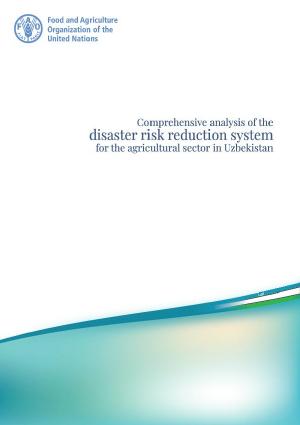
Comprehensive analysis of the disaster risk reduction system for the agricultural sector in Uzbekistan
10/2022
This report aims to highlight the current strengths of the institutional disaster risk reduction (DRR) system for agriculture in Uzbekistan as well as indicate existing gaps and capacity needs to further enhance it. A comprehensive assessment is conducted, which includes a general overview of the country’s agricultural sector and outlines the most frequent natural hazards that are impacting the sector.
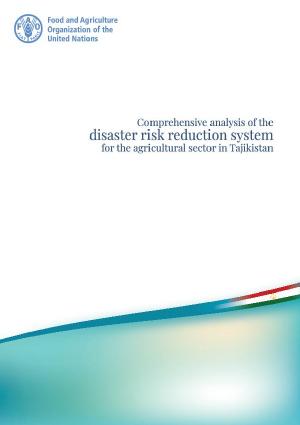
Comprehensive analysis of the disaster risk reduction system for the agricultural sector in Tajikistan
04/2022
This report aims to highlight the current strengths of the institutional DRR system for agriculture in Tajikistan as well as indicate existing gaps and capacity needs to further enhance it. A comprehensive assessment is conducted, which includes a general overview of the country’s agricultural sector and outlines the most frequent natural hazards that are impacting the sector.
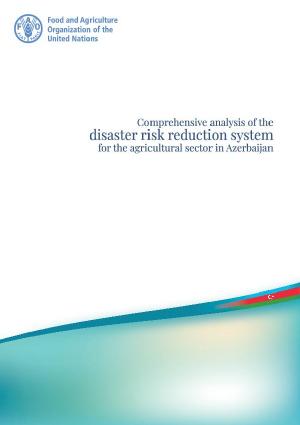
Comprehensive analysis of the disaster risk reduction system for the agricultural sector in Azerbaijan
04/2022
This report aims to highlight the current strengths of the institutional DRR system for agriculture in Azerbaijan as well as indicate existing gaps and capacity needs to further enhance it. A comprehensive assessment is conducted, which includes a general overview of the country’s agricultural sector and outlines the most frequent natural hazards that are impacting the sector.
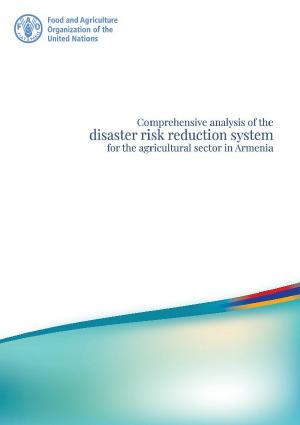
Comprehensive analysis of the disaster risk reduction system for the agricultural sector in Armenia
04/2022
This report aims to highlight the current strengths of the institutional DRR system for agriculture in Armenia as well as indicate existing gaps and capacity needs to further enhance it. A comprehensive assessment is conducted, which includes a general overview of the country’s agricultural sector and outlines the most frequent natural hazards that are impacting the sector.
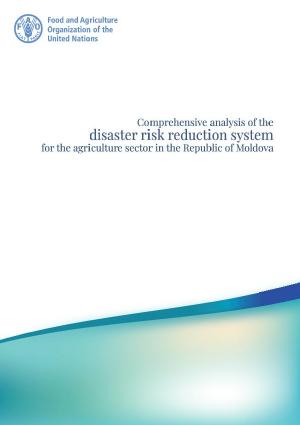
Comprehensive analysis of the disaster risk reduction system for the agriculture sector in the Republic of Moldova
04/2023
This report aims to highlight the current strengths of the institutional disaster risk reduction (DRR) system for agriculture in the Republic of Moldova as well as indicate existing gaps and capacity needs to further enhance it. A comprehensive assessment is conducted, which includes a general overview of the country’s agricultural sector and outlines the most frequent natural hazards that are impacting the sector.
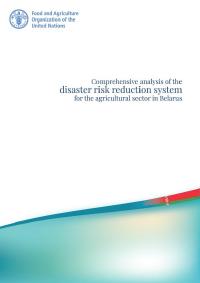
Comprehensive analysis of the disaster risk reduction system for the agricultural sector in Belarus
03/2022
This report aims to highlight the current strengths of the institutional DRR system for agriculture in Belarus as well as indicate existing gaps and capacity needs to further enhance it. A comprehensive assessment is conducted, which includes a general overview of the country’s agricultural sector and outlines the most frequent natural hazards that are impacting the sector.
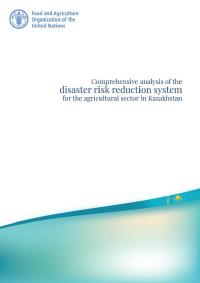
Comprehensive analysis of the disaster risk reduction system for the agricultural sector in Kazakhstan
03/2022
This report aims to highlight the current strengths of the institutional DRR system for agriculture in Kazakhstan as well as indicate existing gaps and capacity needs to further enhance it. A comprehensive assessment is conducted, which includes a general overview of the country’s agricultural sector and outlines the most frequent natural hazards that are impacting the sector.
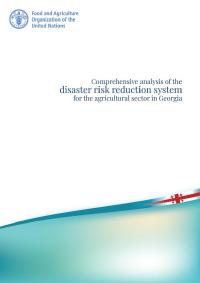
Comprehensive analysis of the disaster risk reduction system for the agricultural sector in Georgia
03/2022
This report aims to highlight the current strengths of the institutional DRR system for agriculture in Georgia as well as indicate existing gaps and capacity needs to further enhance it. A comprehensive assessment is conducted, which includes a general overview of the country’s agricultural sector and outlines the most frequent natural hazards that are impacting the sector.
![3aug2_en[1]](/images/reulibraries/default-album/3aug2_en-1-.jpg?sfvrsn=6f4ed827_3)
Comprehensive analysis of the disaster risk reduction system for the agricultural sector in Kyrgyzstan
06/2022
This report aims to highlight the current strengths of the institutional DRR system for agriculture in Kyrgyzstan as well as indicate existing gaps and capacity needs to further enhance it. A comprehensive assessment is conducted, which includes a general overview of the country’s agricultural sector and outlines the most frequent natural hazards that are impacting the sector.
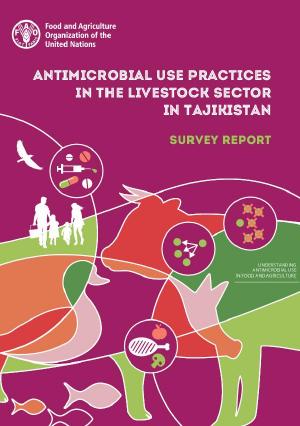
Antimicrobial use practices in the livestock sector in Tajikistan
03/2025
The Understanding Antimicrobial Use in Food and Agriculture series is a compilation of country reports, each describing antimicrobial use (AMU) practices and awareness of antimicrobial resistance (AMR) in the livestock sector. The data presented in these reports was obtained through knowledge-attitude-practices (KAP) field surveys conducted with farmers of priority livestock production systems, field veterinarians, veterinary pharmacies, and feed mills.
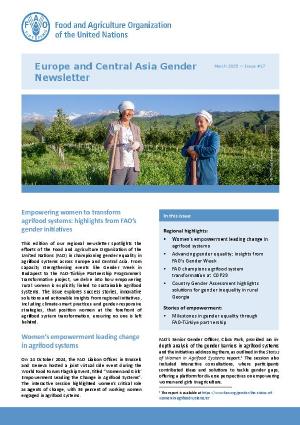
Europe and Central Asia Gender Newsletter, March 2025 – Issue #17
03/2025
In this edition, we explore how women’s empowerment is catalyzing change within agrifood systems and provide insights from FAO’s Gender Week that highlight advances in gender equality. We also discuss how FAO contributed to championing the transformation of agrifood systems at COP29. A special focus is given to the Country Gender Assessment in rural Georgia, which outlines effective solutions for combating gender inequality in the country.
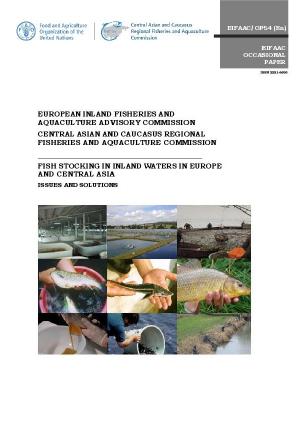
Fish stocking in inland waters in Europe and Central Asia
03/2025
Fish stock enhancement through formal stocking programmes was long recognized as an important tool to compensate the loss of productivity and diversity. Fish stocking is widely implemented across Europe and Central Asia to increase or maintain fish productivity. This report summarizes the main conclusions of a review of the benefits and impacts of fish stocking. It provides a framework to mitigate the negative impacts and maximize the benefits of fish stocking activities.
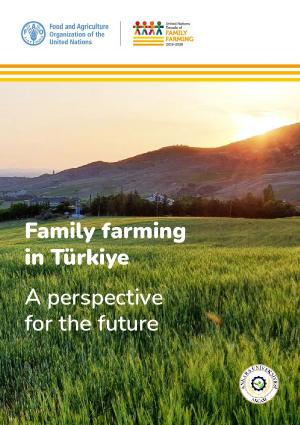
Family farming in Türkiye
02/2025
This report underscores the critical importance of family farming in ensuring sustainable agriculture, food security, and rural development in Türkiye. Family farming contributes significantly to biodiversity conservation, cultural heritage preservation, and the production of nutritious food.
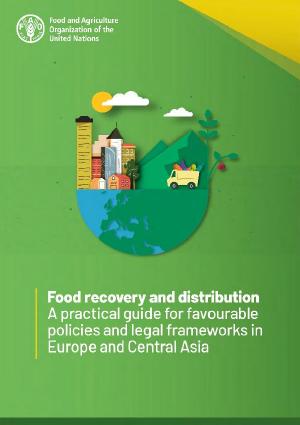
Food recovery and distribution
02/2025
This report provides guiding principles and recommendations for policymakers to use in analysing and reviewing their legal and policy frameworks in order to facilitate food recovery and redistribution as integral elements of broader strategies to prevent and reduce food loss and waste. Its main objective is to support the implementation of policies, as well as legal and regulatory actions, that can reduce food loss and waste along food supply chains.
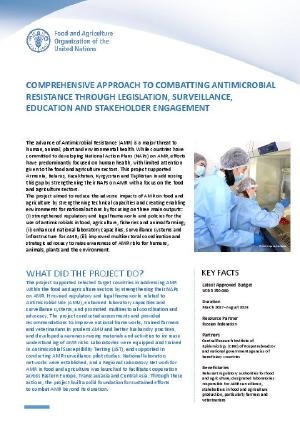
Comprehensive Approach to Combatting Antimicrobial Resistance through Legislation, Surveillance, Education and Stakeholder Engagement
02/2025
The advance of Antimicrobial Resistance (AMR) is a major threat to human, animal, plant and environmental health. While countries have committed to developing National Action Plans (NAPs) on AMR, efforts have predominantly focused on human health, with limited attention given to the food and agriculture sectors. This project supported Armenia, Belarus, Kazakhstan, Kyrgyzstan and Tajikistan in addressing this gap by strengthening their NAPs on AMR with a focus on the food and agriculture sectors.
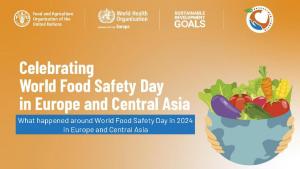
Celebrating World Food Safety Day in Europe and Central Asia: What happened around World Food Safety Day in 2024?
01/2025
This regional report summarizes what happened around World Food Safety Day (WFSD) in 2024 in Europe and Central Asia Region. We hope it inspires you to join in celebrating food safety and raising awareness on important topics for our health, nutrition and well-being.
